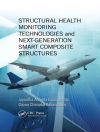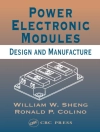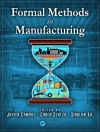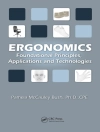This inspiring book shows how the spiritual side of life, with its thoughts, feelings, and aspirations, is intimately bound up with our material technologies. From the wonder of Gothic Cathedrals, to the quiet majesty of lighter than air flight, to the ultimate in luxury of the north Atlantic steamers, Peter Hancock explores how these sequential heights of technology have enabled our dreams of being transported to new and uncharted realms to become reality. Sometimes literally, sometimes figuratively, technology has always been there to make material the visions of our imagination. This book shows how this has essentially been true for all technologies from Stonehenge to space station.
But technology is far from perfect. Indeed, the author argues here that some of the most public and tragic of its failures still remain instructive, emblematic, and even inspiring. He reports on examples such as a Cathedral of the Earth (Beauvais), a Cathedral of the Seas (Titanic), and a Cathedral of the Air (Hindenburg) and tells their stories from the viewpoint of material transcendence. By interweaving their stories he reveals how technologies can succeed in elevating human beings and, in taking them to whole new realms of being, he explores and explains why these experiences are ‘Transports of Delight.’
Inhaltsverzeichnis
Introduction.- Ghosts of the Temeraire.- What a Sight It Is.- The Largest Moving Object Ever Built.- Reaching For God.- Surviving Sisters.- The Riddle of the Labyrinth.- Ships of the Soul.- Threads Through Time.- Transports of Delight.- Autobiomimesis.
Über den Autor
Peter Hancock is Provost Distinguished Research Professor, Pegasus Professor, and University Trustee Chair in the Department of Psychology and the Institute for Simulation and Training at the University of Central Florida where he directs the Minds in Technology, Machines in Thought Laboratory. He focuses on issues concerning human-technology interaction, specifically within the realm of highly complex operations in risk-laden environments. Most particularly, Professor Hancock has conducted extensive research on individual and team performance in high stress and high cognitive workload circumstances. He has an abiding interest in time and within that context he has written an internationally best-selling book on King Richard III of England. Professor Hancock has been awarded the Liberty Mutual Medal of the International Ergonomics Association as well as the Jastrezbowski Medal of the Polish Ergonomic Society for his scientific contributions. He is a Fellow of nine scientific societiesincluding the American Psychological Association (APA), the Institute of Electrical and Electronics Engineers (IEEE), as well as the American Association for the Advancement of Science (AAAS).












